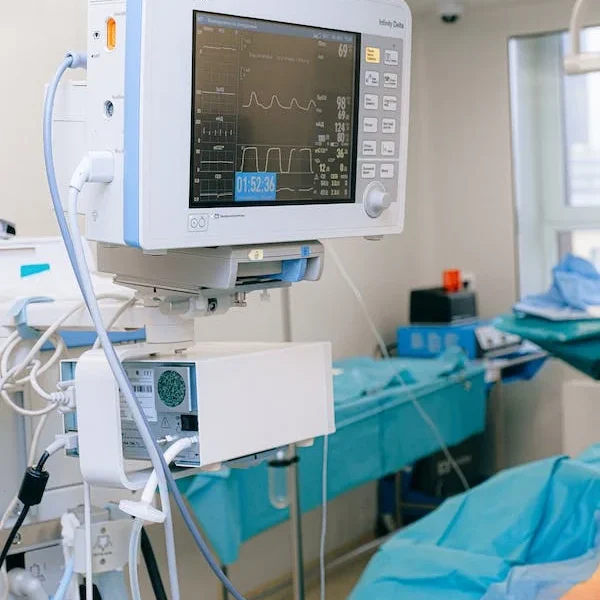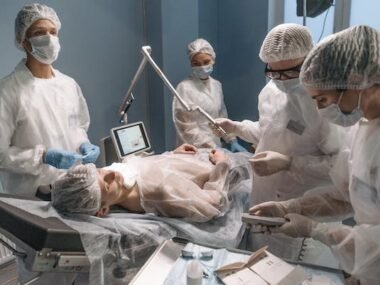Personalized meal planning using technology is a forward-thinking strategy that hospitals may use to improve patient care and satisfaction while optimizing operations. Hospitals are using digital tools more frequently to customize food recommendations to each patient’s demands, tastes, and medical needs as a result of technological advancements.
Personalized meal planning in hospital settings can be enhanced by incorporating technology in the following ways:
- Integration of Electronic Health Records (EHR):Hospitals have the ability to incorporate medical conditions, dietary preferences, allergies, and nutritional needs into patients’ electronic health records. This data forms the basis for customized meal planning, guaranteeing that dietary suggestions correspond with the unique health condition of the patient.
- Hospitals can create or use nutritional assessment apps that are already available, which patients can use using tablets or mobile devices provided by the hospital. To create individualized meal plans, these applications can gather information about your height, weight, medical history, food preferences, and level of activity.
- Algorithms and Nutritional Databases: Hospitals are able to keep up-to-date databases with recipes, foods, and nutritional data. Then, using patient-specific factors and this data, algorithms may be used to create customized meal plans that take into account dietary preferences and allergies while also meeting each person’s unique nutritional needs.
- Interactive Menu Platforms: Patients can choose from a personalized menu of options when interactive menu platforms are used in medical information systems. These platforms have the capacity to offer nutritional data for every meal option, enabling patients to make well-informed decisions that complement their dietary needs and preferences.
- Integration with Dietary Services: Dietitians and nutritionists can examine and adjust patients’ customized meal plans in response to their changing health conditions thanks to the smooth integration of digital platforms and dietary services. The timely implementation of any modifications or alterations to meal plans is ensured by the real-time communication between dietary staff and healthcare providers.
- Remote Monitoring and Feedback: Remote monitoring solutions can measure nutritional intake and give patients feedback, especially for patients with special dietary demands or medical problems requiring continuing dietary care. This feedback can encourage patient compliance and accountability by offering recommendations for maximizing nutrient intake or serving as a gentle reminder to follow dietary standards.
- Education and Support Resources: Nutrition and dietary management-related instructional materials and support resources can be delivered through technology. Hospitals can create mobile applications or web sites that give patients access to resources for controlling certain medical illnesses through diet, as well as nutritional data and cooking advice.
- Hospitals can use data analytics to examine trends in patient satisfaction, food choices, and nutritional results as a means of promoting continuous improvement. Hospitals can pinpoint areas for development and iteratively enhance their personalized meal planning strategy to better suit patients’ requirements and preferences by gathering and evaluating data on the subject.
Healthcare professionals can provide more efficient and patient-centered nutritional treatment in hospitals by incorporating technology into personalized meal planning. This method guarantees that patients receive nutritional suggestions that are specific to their needs and tastes, which improves patient satisfaction while also leading to improved health results.
Personalized meal planning with technology in hospitals has several advantages for both patients and medical staff.
- Higher Patient Satisfaction: Patients are more satisfied with the meals they receive when they receive personalized meal planning, which takes into account their preferences, dietary needs, and cultural preferences. Patients have a better overall hospital experience when they feel that their dietary demands are recognized and taken care of.
- Improved Nutritional Outcomes: Meal plans that are customized to each patient’s exact nutritional needs lead to better health outcomes, especially for those with dietary restrictions or medical conditions. Hospitals can help patients heal more quickly and experience fewer difficulties by making sure their meals provide the right nutrition.
- Enhanced Compliance and Adherence: Patients are more likely to follow dietary guidelines if they receive customized meal plans. Better treatment outcomes result from patients adhering to dietary recommendations when they feel empowered to make decisions that suit their preferences and health objectives.
- Effective Resource Use: By automating processes like data gathering, analysis, and menu creation, technology simplifies the meal planning process. This effectiveness maximizes kitchen operations and minimizes waste by enabling dietary staff to utilize their time and resources more wisely.
- Real-Time Monitoring and Intervention: Healthcare professionals may keep an eye on patients’ nutritional intake in real-time and take appropriate action by using technology-enabled meal planning systems. The quality of care is improved by this proactive approach, which makes it possible to promptly modify meal plans in response to changes in patients’ nutritional requirements or health status.
- Empowerment through Education: Thanks to technology, information about nutrition and diet management may be delivered more easily. In order to help patients comprehend dietary guidelines and take an active role in their own health, patients can access tools and information.
- Hospitals can obtain insights into patient preferences, dietary trends, and nutritional results by utilizing data analytics. This leads to data-driven insights for continuous improvement. With the use of this data, meal planning procedures, menu selections, and patient care generally may all be continuously improved using best practices supported by research.
- Decreased Risk of Adverse Events: Customized meal planning reduces the possibility of unfavourable outcomes like allergic reactions or difficulties brought on by non-compliance with prescribed diets. Hospitals can reduce hazards and guarantee patient safety by appropriately meeting each patient’s unique dietary requirements.
Overall, utilizing technology to personalize meal plans in hospitals promotes a patient-centered approach to care, better health outcomes, higher patient satisfaction, and operational efficiency. By utilizing technology, healthcare providers can provide individualized nutritional support that takes into account each patient’s particular needs and preferences.






